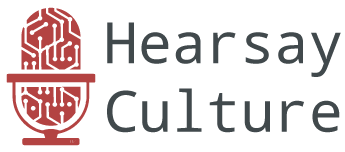A Broadcast StartUp Story – From Creation to Acquisition
As the world reels from the consequences of the Coronavirus, Hearsay Culture is returning to the air this week! With its 10+ year heritage of pioneering law and technology radio and podcasting, Hearsay Culture is back to help guide our new communications ecosystem with expanded and timely expert interviews.
We kick off a new season with author and innovator Andre Gueziec. Inspired by wondering how television traffic reports could be improved, Andre founded Beat the Traffic, a dynamic visualization software for broadcasters that was quickly adopted by television stations and soon after acquired by The Weather Network (Pelmorex Corporation).
In this episode, Dave chats with Gueziec, an inventor with 50 patents, about his book You can be a Silicon Valley Success. During the interview, we examine the founder’s innovation journey and explore global digital technology and culture. Among topics discussed are Gueziac’s view on innovating in a dynamic environment and tips for success, the challenges of finding a great idea, and how Covid-19 may change the landscape for innovators going forward.
Dave is an associate professor at Elon University School of Law and an Affiliate Scholar at Stanford Center for Internet and Society. A KZSU (Stanford Radio) thirteen year veteran, he conducts intimate expert-to-expert conversations focusing on the art of the question.
Listen to the interview on Friday, April 24 at 8pm Pacific on KZSU-FM. The show will be subsequently available via hearsayculture.com, the Stanford Center for Internet and Society page, and in your favorite podcast application.
Lastly, stay tuned for more information about Hearsay Culture’s plans for the future, building on its 260+ interview legacy and influence (starting in May 2006) in the world of communications, law, intellectual property, cybersecurity, privacy, and technology!
